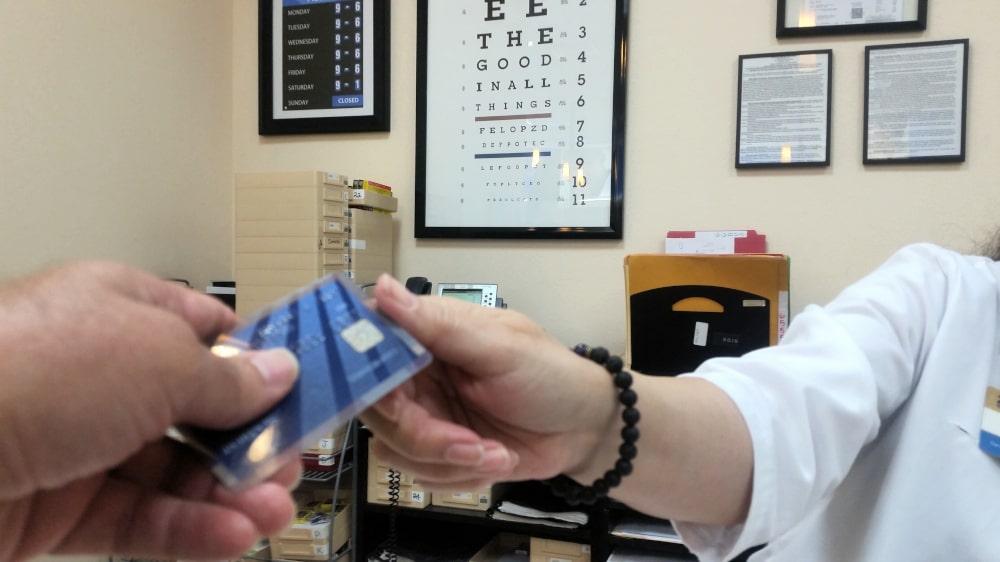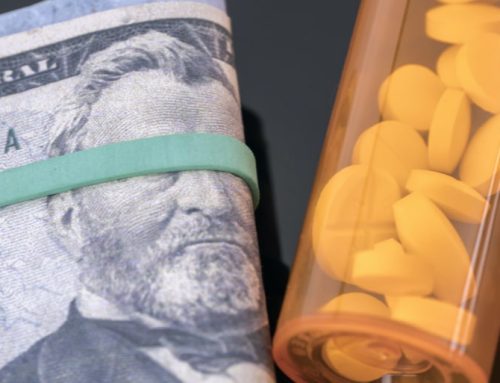
Have you ever wondered how Medicare and the insurance company providing your Supplement coverage coordinate claims? We talk to many people who do, and today we will discuss how this process works.
When you file a claim with Medicare, it goes through a process called Medicare Crossover. Once Medicare approves a claim, they pay first and then send the remainder of the charges to your Medicare Supplement. Medicare generally tells the company what they owe and how long they have to pay. Every Medicare Supplement follows the same rules. They pay directly to the provider according to the policy benefits that you chose. Anything left over is billed to you.
In this article, we are going to talk about Medicare Crossover, how it works, and what charges would be billed to you if you were to have any. Keep reading to learn more.
Medicare Crossover
Crossover refers to the process by which Medicare automatically forwards your Supplement insurance carrier the portion of your claim that it is responsible for paying. If you don’t know how Medicare Supplements work you can read about them here.
This process happens automatically, so you do not have to worry about paying claims upfront and receiving reimbursement for them later on.
As long as your provider accepts Medicare, Medicare will pay its portion of your claim and automatically forward the rest to your supplemental insurance company.
This means your provider never has to bill your Supplement insurance carrier – your provider generates one bill to Medicare, which automatically bills your supplement.
Continue reading to learn more about how Medicare forwards claims to insurance carriers.
How Crossover Works
Many people wonder how the crossover process works.
The crossover process is automatic.
You do not need to notify Medicare of the letter plan you purchased or from which insurance company you purchased it.
When you apply for a Medicare Supplement plan, you will indicate your Medicare number on the application.
If you do not yet have a Medicare number when you apply, that’s OK – many people do not because you can apply for a Supplement well ahead of your Medicare start date.
When you apply before having your Medicare number, you can update the insurance company at a later time. Most companies will ask for it after they issue the coverage.
They do so to set up your crossover of benefits.
You can also call your agent and provide it to them.
If you do not have an agent, we highly recommend working with one vs going directly to the company. Learn why here.
Once your application for a Supplement is approved, the insurance company will let Medicare know after you provide them with your Medicare number.
This is how Medicare will know where to forward your claims after Medicare pays its portion.
Will You Get a Bill?
Medicare has guidelines in place that require healthcare providers to allow time for the crossover process to take place automatically.
They ask that healthcare providers who participate in Medicare wait at least 15 days from the time they receive reimbursement from Medicare to receive payment from Supplement insurance carriers.
This means that healthcare providers should not become impatient waiting for reimbursement from your insurance company and send you a bill for the balance of what Medicare did not pay. Although some still do.
We never recommend paying a bill before Medicare has a chance to send the charges to the Supplement.
You can call your agent or the company directly and find out if Medicare has sent them your bills.
If you feel you received a bill in error, contact your insurance company (or your agent), and they will be able to help you.
Items for Which You Might Receive a Bill
After Medicare and your Supplement pay their portion of your claims they are responsible for, you could receive a bill for the following:
- Deductibles
- Copayments
- Excess charges
Depending on the plan you pick, the amount you owe may change.
We will talk about each of these below.
Deductibles
Most Medicare Supplements do not pay your annual Part B deductible ($233 in 2022). This amount is updated every year here.
This deductible amount is what you owe for outpatient medical expenses. You pay this before Medicare pays its portion of your claims. Your Supplement insurance company then pays its share.
The first couple of times you see your provider you’ll get billed the Part B deductible.
Once you have met your deductible, you will receive a letter from Medicare stating that you have done so.
Most Supplements pay your Part A deductible in full.
If you have a Supplement Plan that does not cover the Part A deductible or only covers a certain percentage of it, you may receive a bill if you have an inpatient hospital admission.
Again, it is essential to note that most Supplement Plans cover the Part A deductible.
Learn about Part A here and Part B here.
Medicare Supplement Plan F and Plan G have a high deductible option.
If you have either of those plans, then you will receive bills until you meet that plan deductible.
We talked more about those plans and their high deductible options in another post, which you can read here.
Let’s look at an example:
Ben has Medicare Supplement Plan G.
He goes to his primary care doctor for the first time this year and a week later goes to his cardiologist for a stress test.
They send him a bill from his primary care doctor for $150 and a bill from his cardiologist for $83.
Ben pays the two bills totaling $233 (2022 amount) because he has to meet his annual Part B deductible.
Afterward, he goes to several more doctor appointments and receives no more charges because he’s satisfied the Part B deductible.
You can learn more about Medicare deductibles here.
Copayments
Some Medicare Supplements require that you pay a copay for certain healthcare services.
On Supplement Plan N for example, the copay amount is about $20 to see your primary care doctor or specialist. The copay for emergency room visits that do not result in an inpatient hospital admission is $50.
Copays are separate from what Medicare pays and what your Supplement insurance company pays.
You will not receive a bill for any copayment amounts until you have met any deductibles for which you may be responsible. Learn more about copays here.
Excess Charges
Only Medicare Supplements F and Plan G cover excess charges.
If you see a healthcare provider who does not accept Medicare payment as payment in full, you might be subject to an excess charge.
The amount is an additional charge of up to 15% of the Medicare-approved amount for the cost of your services and visit.
The good news is it is rare that you would be subject to an excess charge, and if you were, it would likely be minimal.
Most providers – around 96% nationwide – who accept Medicare accept Medicare payment as payment in full.
If you would be subject to an excess charge in the unlikely event, the average is between $8-$10.
We talked about excess charges in more detail in another post, which you can read here.
Summary
Many of our clients like Medicare Supplements as additional coverage because they do not have to be involved in the claims process.
This crossover process happens automatically between Medicare and your Supplement.
You should not receive a bill unless you are responsible for paying any deductible, copayment, or any excess charges.
If you have any questions, use the search tool at the top of this page or on the home page.
Or, if you would like further detail on any of the topics we discussed, please fill out a contact form and submit your question.
If you prefer to speak by phone, call us at 888-209-5049.






Leave A Comment